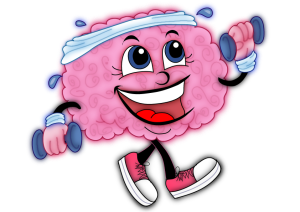Although life expectancy has more than doubled since 1900, our “mindspan”—how long we stay cognitively healthy—hasn’t kept pace. Forgetfulness, slower processing and feeling less sharp plague most of us as we age. One in five people develops mild cognitive impairment, a decline in thinking skills beyond normal aging, which may or may not advance to dementia. After 65, your odds of developing Alzheimer’s disease are one in 10. It doesn’t have to be that way, mounting research suggests.
“The very term ‘age-related memory loss’ may be a misnomer,” says neurologist Dr. Richard Isaacson, an Alzheimer’s specialist at Weill Cornell Medicine in New York.
Time and genetics alone don’t erode brain functions. How we spend our lives managing the modifiable risk factors that affect our genes is highly significant for our brain health, researchers say.
Brain health: Stop thinking there’s nothing you can do. “Awareness of the steps to improve cognitive brain function is at least a generation behind that of heart health,” says cognitive neuroscientist Sandra Bond Chapman, director of the Center for Brain Health at the University of Texas at Dallas.
In a review of public awareness studies by PLOS One, a nonprofit, peer-reviewed, online scientific journal, nearly half of the respondents mistakenly believed Alzheimer’s disease is a normal process of aging that you can’t do anything about. In reality, a third or more of dementia cases can be delayed or prevented by lifestyle factors, according to a 2017 report sponsored by the Lancet Commission on Dementia Prevention, Intervention and Care.
Use brain health to motivate your health habits. Advances in neuroimaging kicked off this new era of brain health by allowing scientists to see inside the brain. What’s become clear: All aspects of physical and emotional health affect cognitive ability. That’s powerful motivation the next time you’re tempted to skip a workout or not opt for a healthy meal, do nothing about stress or loneliness, or avoid treatment for conditions like depression, anxiety, diabetes and sleep apnea. Effects of all of these choices, and many others, travel north.
Resist too much habit and routine. Hallmarks of brain-stimulating activities that improve cognitive abilities, according to a 2017 report by the Global Council on Brain Health (GCBH) are novelty, high engagement, mental challenge and enjoyableness. If you like crosswords, fine, but push beyond to new games and challenges. Good examples from the GCBH: Tai chi, researching genealogy, picking up an old hobby you dropped, making art and community volunteering. When activities include a social component, so much the better.
Be aggressive about blood pressure. In 2018 researchers at Wake Forest University in Winston-Salem, N.C., showed for the first time that lowering blood pressure to below 120 can significantly reduce the risk of mild cognitive impairment (MCI).
Work your brain harder, but not by multitasking. Your brain grooves on doing— but only one thing at a time. Multitasking stresses it. Researchers say one better alternative is a cognitive exercise called “strategic attention.” The Strategic Memory Advanced Reasoning Training program at the University of Texas at Dallas, advises this: Every day, pick two substantial tasks requiring fairly deep thinking. They might be tracking and analyzing your household budget, planning a vacation, writing a memo or following a complex new recipe. Then carve out two 30-minute sessions to focus without interruption.
Turn off email alerts. Shut the door. No quick scrolls through your news feed that will take you off your task. It takes up to 20 minutes to refocus after a disruption. Over time, you’ll find that you’ll achieve much more, and much more quickly, with improved attention.
Do (the right kind of) nothing. It’s not all about activity. The brain needs two kinds of downtime to function optimally: Rest and sleep. Rest means taking breaks from active thinking. Try taking five minutes, five times a day, to sit still and do nothing. Other routes to mental R&R include mindfulness, meditation and yoga nidra (also known as iRest and sleep yoga). Not least, there’s sleep itself. Our awareness of how important it is to the brain grew with the discovery of the body’s glymphatic system—a kind of internal trash-hauling system—less than a decade ago. The system’s pace increases by over 60 percent during sleep, a possible link to why getting more sleep is linked with a reduced dementia risk. Alzheimer’s prevention experts recommend eight to nine hours a night.





